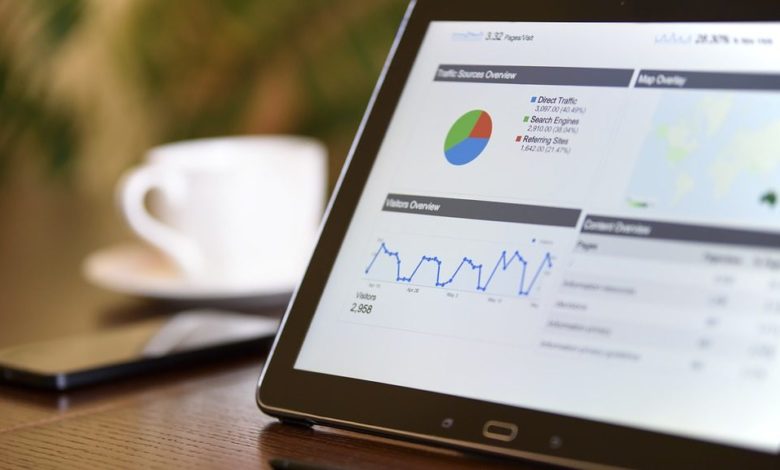
By 2020, all businesses across the UK will be required to transition to digital tax accounts. The process is known as Making Tax Digital (MTD) and is designed to ease the task of managing, reporting and paying tax, alongside closing the widening tax gap, which currently stands at over £8 billion a year. However, there is scepticism amongst businesses – particularly contractors with their own limited companies and small to medium sized enterprises (SME’s) – as to what these changes will mean in practice. What do business owners need to be prepared for when it comes to making tax digital?
At Nixon Williams, we manage a large client base of small businesses, contractors and self-employed individuals, with a focus on leading British businesses into the era of digital tax accounts. The MTD changes are more likely to affect those businesses that are predominantly more likely to not have the software requirements to meet the MTD requirements compared to larger counterparts. Research by the ICAEW found that 75% of all UK businesses were not maintaining their accounts electronically or using accounting software, so there’s a lot of work to be done.
How has the rise of online accounting services changed how SMEs approach their tax and accounting processes?
Businesses tend to not to like change as there’s a fear of new processes resulting in down-time, however, the transition from paper-based systems to online accounting services has drastically improved the speed, safekeeping and organisation of business and tax accounts. The majority of our clients who use our online services could not imagine going back to paper-based accounts. The 2020 deadline for MTD has most certainly prompted many contractors to look more closely into the transition, which can be a challenge, particularly for those business owners who have had the same paper-based accounts approach for 10, 20 or 30 plus years.
Is the ‘shoebox’ approach to accounting still prevalent? What is your advice to these SMEs about MTD, when all tax not just VAT returns must be filled electronically?
A large majority of small business owners are still implementing the ‘shoebox’ approach. My advice to those still using this method would be to firstly seek advice from a professional with expertise in MTD, such as a chartered accountancy practice. Online systems may also give you better insights on how your business is performing as opposed to traditional paper-based methods. Most of our clients once they have taken the plunge into digital accounts are amazed by the benefits compared to the paper-based approach, and we feel it complements the personal service we provide to our clients through a dedicated accountant they have direct access to.
I would say the biggest benefit of online accounting for SME’s is how much more organised their accounts are and the ease of finding a particular receipt, figure or document compared to the traditional ‘shoebox’ approach. It gives business owners more time to focus on the things that matter most, such as growing their business.
Is MTD as transformative as many seem to think it is, or simply a way for HMRC to reduce its costs and improve efficiency?
From my experience I believe it is a mixture of both. Businesses that embrace the transition from paper based to online accounts and essentially ‘buy in’ will reap the rewards of a more organised, efficient and cost-effective system with their approach towards tax. Nevertheless, HMRC are keen on this transition to drastically reduce the tax gap, which would continue to widen if the archaic paper systems would not be replaced with an online solution.
Do owner/managers of SMEs have the technical knowledge they need to make the most of MTD this year if they are VAT registered, or in the future when MTD rolls out to all businesses?
Many will certainly have the basic technical knowledge to capitalise on the transition to online accounts. I believe the high figures for still using a paper-based system rather than doing it online is more about the previous lack of a push for the need to change, especially when it comes to small business owners, who often have a million and one things to complete each day, with changing the way they pay tax probably not often at the top of the list.
For those who don’t have the technical knowledge, I strongly recommend seeking professional accountancy advice to ease the transition. Many practices now offer a step-by-step guide and can patiently provide support for the less technically-savvy business owner.
What is the role of the accountant with MTD? Are they becoming technical advisors that have to understand how APIs work, and how the many accounting systems available connect to MTD?
The role of the accountant when it comes to MTD can be varied. This can include technical support for our customers on how to use our accounting systems, to actually managing the entire process for them. At Nixon Williams we feel like we are an extension of every one of our customers’ businesses, so dependent on their needs, we provide a varied service when it comes to MTD. All of the systems we use are currently available to connect to MTD and over the past few months we’ve strengthened our teams to ensure we have people that are dedicated to the upcoming changes. Above all though, we believe technology is there to empower the relationships we have with our clients – not replace it – and that’s why we believe a combination of personal service and digital innovation is the perfect blend when it comes to accountancy.









